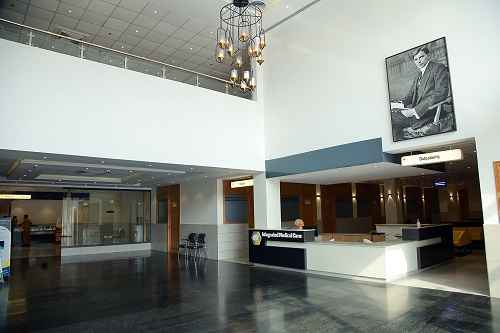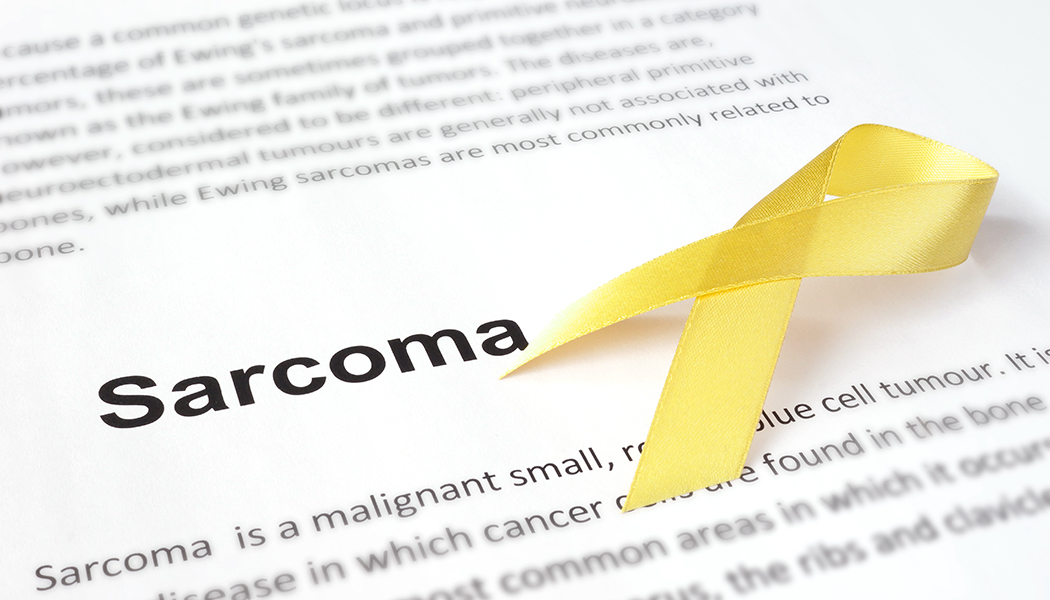- 26-Jun-23
Sarcoma is a form of cancer that develops in the body's connective tissues including the blood vessels, muscles, bones, and cartilage. Malignant cells in these tissues grow atypically which is one of its defining characteristics. Sarcomas are divided into two categories: soft tissue sarcomas and bone sarcomas and they can develop in different regions of the body. They frequently appear as lumps or masses and may result in symptoms like discomfort, swelling, and restricted motion. Examples of diagnostic procedures include biopsies and medical imaging. Chemotherapy, surgery, and radiation therapy are all offered as therapies. Sarcomas are uncommon when compared to other types of cancer.
Types of Sarcoma:
Sarcoma is a type of cancer that arises from cells of mesenchymal origin which are found in the connective tissues of the body. There are various types of sarcoma, classified based on the specific type of tissue or cell from which they originate. Here are some common types of sarcoma:
Soft Tissue Sarcoma: This is the most common type of sarcoma which can develop in soft tissues such as muscles, tendons, fat, blood vessels, nerves, and deep skin tissues. Examples include:
- Leiomyosarcoma: Arises from smooth muscle cells.
- Liposarcoma: Originates from fat cells.
- Rhabdomyosarcoma: Affects skeletal muscle cells often found in children.
- Synovial Sarcoma: Develops near the joints typically in young adults.
Bone Sarcoma: These sarcomas develop in the bone and can affect any bone in the body. Examples include:
- Osteosarcoma: Most common bone sarcoma is typically found in children and young adults.
- Ewing Sarcoma: Primarily affects children and young adults and commonly occurs in bones or soft tissues around bones.
Gastrointestinal Stromal Tumor (GIST): GIST is a particular kind of sarcoma that typically develops in the stomach or small intestine of the gastrointestinal tract. They come from specialized cells known as Cajal interstitial cells.
Desmoplastic Small Round Cell Tumor (DSRCT): This is a rare and aggressive sarcoma that typically occurs in the abdomen specifically the peritoneum which lines the abdominal cavity.
Kaposi Sarcoma: A type of sarcoma caused by a virus called human herpesvirus 8 (HHV-8). It typically presents as skin lesions but can also affect other organs.
Angiosarcoma: Originating from cells that line the blood vessels or lymphatic vessels, angiosarcoma can occur in various parts of the body including the skin, breast, liver, and deep tissues.
Dermatofibrosarcoma Protuberans (DFSP): This sarcoma primarily affects the skin and usually presents as a slow-growing, firm and raised mass.
It's important to note that this list does not cover all types of sarcoma as there are rarer and specific subtypes. Each type of sarcoma can have different characteristics, treatment options, and prognoses. Diagnosis and treatment should be discussed with a medical professional specialized in oncology.
Sarcoma Symptoms:
Sarcoma refers to a group of rare cancers that develop in the bones, soft tissues (such as muscles, tendons and fat), and other connective tissues of the body. The symptoms of sarcoma can vary depending on the location and size of the tumor. Here are some common symptoms associated with sarcoma:
- Swelling or lump: The tumour site may experience a palpable bump or enlargement. It might or might not be accompanied by discomfort.
- Pain: Sarcoma frequently exhibits persistent pain in the affected location which might gradually get worse over time. The discomfort could be acute, achy, or dull.
- Limited range of motion: If the sarcoma affects the muscles or joints, it can cause stiffness or restricted movement in the affected area.
- Tenderness: Touching the affected area could make it sore.
- Fatigue: General fatigue and weakness can occur in some cases, particularly if the sarcoma has grown large or has metastasized (spread to other parts of the body).
- Weight loss: Unexplained weight loss can be a symptom of advanced sarcoma.
- Bone fractures: Sarcomas that develop in the bones can weaken them, making them more prone to fractures.
It's important to note that these symptoms are not exclusive to sarcoma and can also be caused by other conditions. If you experience any persistent or concerning symptoms, it's advisable to consult a healthcare professional for a proper evaluation and diagnosis.
When to See a Doctor?
To see a doctor for sarcoma means to seek medical attention from a healthcare professional if you experience symptoms suggestive of sarcoma or if you notice any unusual lumps, swelling, or persistent pain. It is important to consult a doctor in order to receive a proper evaluation, diagnosis, and appropriate treatment if necessary.
Integrated Medical Care Hospital (IMC Hospital):
IMC Hospital, which is well-known and regularly mentioned, is one of Pakistan's best hospitals. Now that a collection of senior, intelligent, and experienced medical specialists have been gathered under one roof, the IMC Hospital may benefit from their years of experience working at some of the most known and reputable medical facilities in the world. Appointments are accepted at the Integrated Medical Care Hospital (IMC Hospital).
Prof. Surgeon Asim Malik BS (KE), FRCS (UK), FICS (USA), DIP LAP. (France) - Chief of Surgery (IMC).
Team: Surgeon Ossama Ather (BS, MRCS), Lady Surgeon Iram Naseem (BS, MRCS), Lady Surgeon Saima Amjad (BS, FCPS), Surgeon Hisham Ahmed (BS, FCPS).
Specialties: Surgery, Laparoscopic Surgery, Bariatric Surgery.
Areas of Focus: Advance Laparoscopic, Vascular & Cancer Surgery, Surgical Gastroenterology, Bariatric (Weight Loss) Surgery Laparoscopic Gynecology, Minimal Invasive Endocrine Surgery ( Thyroid, Para Thyroid & Adrenals).

 Map
Map










